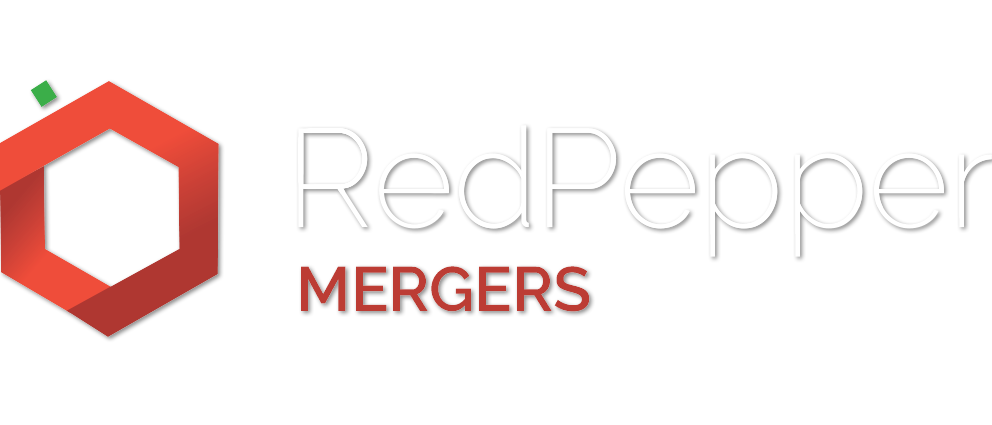Each year, thousands of talented Australian entrepreneurs come pouring out of the woodwork, starting fresh new startups with bold ideas, and seeking funding, customers, or just recognition.
Those entrepreneurs are the backbone of Australia’s startup ecosystem, and often once they find one success, they dive back in, seeking another.
While it’s impossible to recognise every promising new startup, the team at StartupSmart has compiled a short list of 10 of the most prominent that have caught our eye over the year.
The people behind these startups are some of the brightest, most successful, or most promising founders that, even in such a tumultuous and fast-moving industry, we think are set to achieve great things over the course of 2018.
Checkbox | Evan Wong
Founder of regtech platform Checkbox Evan Wong admits he’s not at the “serial” stage of entrepreneurship yet, but with two businesses under his belt at the age of just 24, he appears to be well on his way.
Checkbox is one of those businesses, and the legislation digitising platform recently won the grand prize at the annual StartCon pitch competition, which means the team will go on to represent Australia on the world stage at Startup World Cup in 2018. Checkbox was also named regtech of the year at the 2017 Australian FinTech Awards and was a 2017 Westpac Innovation Challenge winner.
Wong says he and his team aren’t scared of the challenge before them, but with an ever-growing list of accolades under his belt, he says he can feel the pressure and isn’t letting it get to him.
“You see businesses who win a bunch of awards but they were all three years ago, and you wonder what’s happened since then. We’re not going to be that business, I’m confident about our products and meeting everyone’s expectations as we move into 2018,” Wong recently told StartupSmart.
:Different | Mina Radhakrishnan and Ruwin Perera
The property market has been a popular target for disruptive startups this year, with ventures such as Hometime and Snug diving in to try to ease some of the pains of Australia’s bulging property market.
Newly founded startup :Different is, well, no different. The company is looking to make renting and property management easier for mum and dad property owners, and is headed up by Google and Uber alumni Mina Radhakrishnan and Ruwin Perera. The two founders recently completed a $1.3 million seed round and have seen an uptake of the platform to the point they had to disable their advertising.
According to Radhakrishnan and Perera, “there’s no better place in the world to build a high-growth startup” than Australia.
“Australia is one of richest countries in the world per capita, and there are 24 million affluent consumers willing to take a punt on new technology. Aussie consumers are some of the most willing to embrace new tech when it’s made available to them,” Perera told StartupSmart.

Ruwin Perera and Mina Radhakrishnan. Source: Supplied.
CancerAid | Nikhil Pooviah and Raghav Murali-Ganesh
It’s been a hell of a year for the founders of personalised cancer patient care app CancerAid, after closing a $1.25 million funding round at the end of 2016, receiving further investment from investor Glen Richards on Shark Tank, and being named as a “standout launch” by Apple on its app store.
Recently, the team also won 2017’s Talent Unleashed awards, being judged by an expert panel including Apple co-founder Steve Wozniak and Virgin founder Richard Branson. The team won a trip to Silicon Valley to meet global startup leaders and pitch their cancer resources app.
Prior to winning the award, co-founder Raghav Murali Ganesh said the “ideal scenario” would be to win the awards and use the opportunity to “meet global leaders, learn from experienced individuals both at home and abroad [and] raise the profile of the work we are doing”.
“Our goal is to make CancerAid the number one resource for patients when faced with a cancer diagnosis or undergoing therapy to improve their outcomes and satisfaction,” he told StartupSmart.
Mentorloop | Lucy Lloyd and Heidi Holmes
After closing a $725,000 funding round last month, mentor “dating” startup Mentorloop has now raised over $1 million and landed a number of big-name partnerships, including with Monash University and the Australian Olympic Committee.
This, coupled with a 500% revenue growth over 2017, sets Lucy Lloyd and Heidi Holmes’ company up for a big 2018. The plan is to focus on further expanding their mentoring connecting options to cross-company mentoring, and eventually opening up the platform to anyone looking for a mentor.
“We see clients really underestimate the demand for mentoring in their organisations, and in the same way we’ve kind of underestimated the demand for our platform,” Lloyd told StartupSmart.
“We’re trying to grow sensibly. We don’t want to suddenly be a 25-person team.”

Mentorloop founder Lucy Lloyd and Heidi Holmes. Source: Supplied
Power Ledger | Dave Martin and Jemma Green
The year may well be known in history as the year of the blockchain, as a rise to prominence for the emerging technology has seen absurdities such as $24,000 Bitcoins, and companies raising $35 million in 30 seconds through explosive initial coin offerings (ICOs).
One of Australia’s first and most successful ICOs was completed by the Power Ledger team, which managed to raise $34 million in investment to help build their power-trading-on-the-blockchain company. But that wasn’t the end of the company’s wins: it also recently locked down part of an $8 million federal government Smart Cities grant to help roll out its tech in Fremantle.
Co-founder Jemma Green says there’s plenty of positives on the horizon for Power Ledger, telling StartupSmart the focus of the company is to increase use cases for its tradeable POWR token.
“We’ve got a pipeline of projects we’re working on which will hopefully see an increase in utilisation for the POWR token. That’s the focus of the business — create projects which will increase the use of the POWR token,” she said.
1scope | Christina Chun
Christina Chun’s education tech startup 1scope turned some heads earlier this year after it locked in $1 million in seed funding while the platform was still in beta — an achievement Chun said was hinged on advice from a number of advisors, including an Atlassian executive.
“I had to surround myself with people who had run large companies or done deals like these before,” Chun told StartupSmart in March.
The social enterprise startup has since launched out of beta, with Chun and her team moving into offices in Sydney’s Barangaroo district. She told The Australian the goal is to get 34,000 students on the platform to help them access training, work experience, and job opportunities.
“We want as many students to use the site as possible and we want as many companies who are running programs to be involved,” Chun said.

CanYa | John-Paul Thorbjornsen and Christopher McLoughlin
Services marketplace app CanYa was built with cryptocurrencies in mind, allowing users on the service to pay, and be paid in, currencies like Bitcoin, Litecoin, and Ethereum. It only made sense then for the company to launch its own currency via an ICO, which so far has raised upwards of $2.3 million.
With the raise set to close by the end of this month, CanYa’s year ahead will be focused on putting that capital to good use and delivering for its customers. The team wants to prove to backers it is committed to the project, in contrast to those blockchain projects released this year they say have been “nothing but a whitepaper”.
“We want to build a strong community, and give people benefits for being long-term believers in CanYa. This model’s never been done before so we’re finding our feet, but it’s gotten some incredible reception,” co-founder Thorbjornsen told StartupSmart.
Hyper Anna | Natalie Nguyen and Sam Zheng
Mixing two of 2017’s ‘hot topics’ for startups — fintech and artificial intelligence — Sydney startup Hyper Anna validated its product and concept through a $16 million capital raise in August, becoming one of the largest local fintech raises this year along the way.
Big name clients such as Westpac and IAG helped the startup secure investment, with co-founder and chief executive Natalie Nguyen telling StartupSmart the capital will be used to help expand the startup’s offerings internationally. Billed as “Siri for analytics”, Hyper Anna has built a “virtual data scientist” offering ‘Anna’, which answers questions about business performance and analyses data.
“Larger organisations have really woken up to the value of working with smaller organisations whose sole focus is solving a particular type of problem, often niche problems,” Nguyen said.

The Hyper Anna team. Source: Supplied
Finch | Toby Gardner and Shahirah Gardner
Finch founders Shahirah and Toby Gardner are some of the latest Aussie-born entrepreneurs returning from the wilds of Silicon Valley to launch their startup Down Under, with the two joining forces to launch millennial-focused financial management app Finch after studying together in California.
And just three months after officially launching their product, the two received a “Silicon Valley-sized” seed round of $2.25 million. Planning is already underway for a $10 million Series A round for 2018.
“We consider ourselves a professional startup and because of that we recognise what investors are looking for and the risks involved. We were very conscious of making sure we chose the right investment money. We’re very happy to see the Australian investment community providing the capital we needed,” Toby Gardner told StartupSmart.
Most of the funding will be put towards further marketing for the duo’s app.
Zambesi | Rebekah Campbell
Startup-focused education startup Zambesi is the most recent venture to come from entrepreneur Rebekah Campbell, who’s most well known for creating mobile ordering and payments provider Hey You, which she merged with ordering platform Beat the Q.
Zambesi was born largely from Campbell’s own success as an entrepreneur. She told StartupSmart she was being contacted by many founders who would ask for coffee catch-ups to receive advice from her, but she found the interactions were not in depth enough to provide real help.
“We were thinking we could rent out our extra room on Airbnb, and I thought, ‘why don’t I rent out my skills in raising capital?’” she said.
Zambesi has received a $25,000 grant from Jobs for NSW and launched officially in October with sessions from big names including Shoes of Prey co-founder Mike Knapp, Canva’s head of growth Andre Pinatoan, and Fleur Brown from TEDxSydney.

Zambesi founder Rebekah Campbell. Source: Supplied.
Follow StartupSmart on Facebook, Twitter, LinkedIn and iTunes.
The post Ten Australian startups to watch in 2018 appeared first on SmartCompany.
VIEW ARTICLE
If you would like to know more regarding the topic in this blog post, please do not hesitate to contact us.

